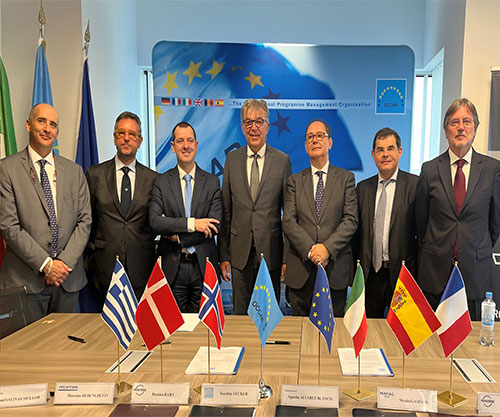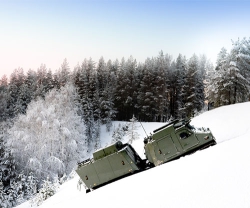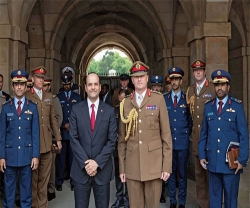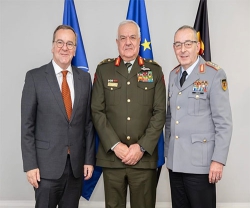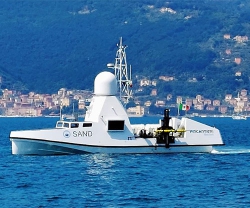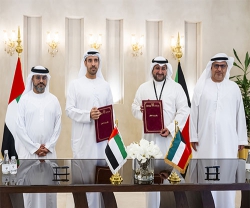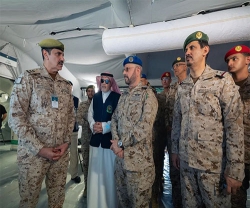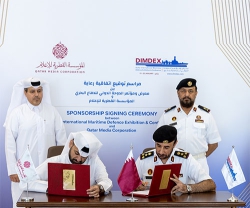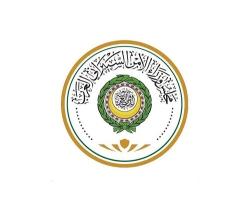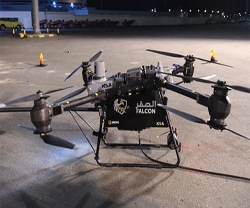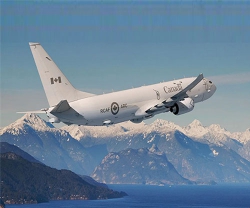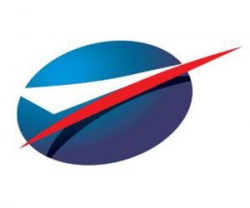On the 24th October 2023, with a ceremony held at OCCAR premises in Rome, OCCAR (Organisation for Joint Armament Cooperation) has signed with a Consortium, coordinated by Naviris and gathering together Fincantieri (Italy), Naval Group (France), Navantia (Spain) and other beneficiaries from Greece, Denmark and Norway all the Modular and Multirole Patrol Corvette (MMPC) contractual documents for the implementation of the first phase of the European Patrol Corvette (EPC) project.
The overall value of this first phase is 87 M€ and is strongly supported by the European Commission (EC) through the European Defence Fund (EDF). Indeed, 60 M€ will be funded by the EC in the form of “grants” while the remaining 27 M€ will be funded by the Member States (Italy, France, Spain, Denmark, Greece and Norway) who decided to support the project. OCCAR will manage the full scope of the project, acting as Granting Authority, on mandate of the EC, and Contracting Authority, on mandate of the above-mentioned Member States.
On the same day, the Delegates of the companies signed a consortium agreement, whose objective is to rule the execution of the project, maximizing synergies and collaboration among European shipbuilding industries.
With a duration of 24 months, this MMPC first contract aims to provide the initial design of a next generation class of naval vessel, the European Patrol Corvette (EPC), launched in the context of a PESCO project. The EPC will include at first two main versions: the Long Range Multipurpose and the Full Combat Multipurpose, both maximizing innovations, synergies and cross-fertilization among three main European shipbuilding architects and manufacturers Naval Group, Fincantieri, Navantia, linked with the operational needs of the different Navies.
The EPC programme represents a step forward in the European defence cooperation. It will strongly contribute to the European sovereignty in the second line vessels domain, by strengthening the European industry, increasing efficiency and lowering delays to go from the military need to the delivery to Navies. By developing together a new and disruptive class of corvettes, the four companies aim to ensure and foster a European sovereignty based on European “in-house” skills and know-how.
This contract signature highlights the capabilities of the nations, through the management by OCCAR, to work efficiently together and to pool the know-how of their prominent naval industries, for supporting the European 1 navies. It also shows how important and effective can be the EDF, to support the European Member States in the development of defence capabilities made in Europe.Based on innovative and disruptive technologies, the new class will illustrate a group of smart, innovative, affordable, sustainable, interoperable and flexible vessels designed to meet a wide range of missions in a continuously evolving context.
Depending on the requirements specified by each Navy, the ships will be able to carry out a wide range of missions in operational contexts as diverse as surveillance on the high seas with a high degree of autonomy, or law enforcement and sovereignty affirmation missions closer to the coast, adapted to the different Navies needs.
The European Patrol Corvette (EPC) is a program of future innovative naval vessels which is developed in a collaborative way by several Navies and members of the European Union, under the banner of the PESCO project (PESCO approval in 2019). Five Navies have officially joined the project (Italy, France, Spain Greece and Norway while Romania, Ireland and Portugal are observers) to define jointly the requirements for a 2nd rank surface combatant of about 110 meters long and 3000 tons able to replace in the near future several series of ships.
The EPC project is strongly supported by European Commission and participating Member States. The European Commission opened a call named MMPC – Modular and Multirole Patrol Corvette - for which Naviris coordinated the elaboration of a proposal by pooling together the expertise of a European consortium (40 companies in 12 countries) which was submitted in December 2021. This proposal has been selected in July 2022 with a grant of EDF and national co-funding of the Member States for a two year initial phase of design, the development of technological bricks and the definition of common working methodologies, rules and standards.

